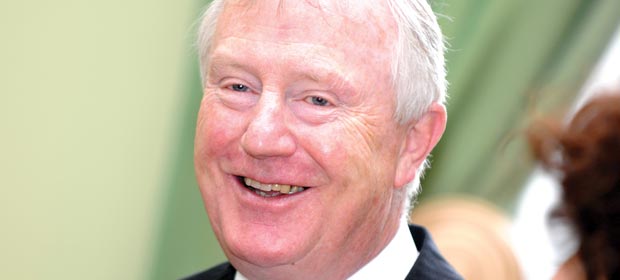
Fadó fadó a wise man, W W Jacobs, wrote – “Be careful what you wish for, you may receive it.” A good example of what seemed to me like a lack of care arose recently.
I understood the recent RTE funding decision to be one cobbled together in the hope of moving on a problem that just wouldn’t go away. It was a solution that divided the government and embarrassed the Minister responsible for the broadcaster. I was surprised then to read a Sunday Times report that listed a sizable number of public sector unions seeking a change to multi-annual budgeting based on the RTE deal and the praise it received by An Taoiseach. The report claimed the President of the IMO went so far as to suggest – “So let’s just have a ten-year health budget and just accept the costs and just do it, rather than having an artificial budget which from the start of the year everybody knows won’t be enough to sustain the system”. Well, good luck with that!
A year is a long time in politics, ten years is two full terms in political systems like ours. In the past ten years here we have experienced the recovery from the financial crash, COVID19, the cyber attack on the HSE and the war in Ukraine which led to inflation and a sudden increase in the numbers seeking asylum here. These are just some examples of what Harold McMillan would have described as ‘events, dear boy, events’ in politics. We have learned from them that events don’t just arrive, cause havoc, and go away. For many, lives were, in the words of Yeats, changed, changed utterly. Experience and a looming general election mean we are unlikely to move to multi annual budgeting anytime soon.
That said, so what would I suggest? Last time I spoke of the advice of George Bain, former Vice Chancellor of Queen’s University, Belfast, who championed the need for someone to watch the sea while others watched the waves. Since then there have been two very relevant pieces of feedback from those who are good at watching the sea.
Modern healthcare systems rely heavily on being able to attract and retain adequate numbers of suitably qualified employees, who are encouraged and supported to maintain the high standards expected of them and to achieve the levels of job satisfaction they aspire to. Our universities play a crucial role in determining the quality of our health services. They also play a vital role in supplying healthcare professionals in the numbers and of the calibre needed.
Hugh Brady, president of Imperial College London and a former president of UCD, is worth paying attention to especially when he is concerned about the direction that third level education in Ireland is going. In an article in the Irish Times on the June 22, he paints a worrying picture of a vital sector that is in decline and suggests what needs to be done to restore the standing of our universities. He accepts that “Irish universities still hold on to top Irish school leaver talent and do a great job with limited resources but, comparatively speaking, the quality of experience is slipping and is only going to get worse over time “ He claims Irish research funding has fallen badly behind the UK and top European countries. He reminds us that “one of the problems is that damage is gradual, it happens over time and therefore may not be recognised until it is too late”. The negligible public response to his valuable advice freely given is of itself worrying.
Does anyone actually believe the assertion that Ireland is full? I doubt it. The reality is that Ireland is one of the least populous countries in Europe. Recent publications by our Central Statistics office reveal that our population exceeds 5 million for the first time since 1951. Our population is growing faster than at any time since the famine and is projected to continue growing in the decades ahead. Between 1926 and 1971, when regional health boards came into being, the population of the State declined from 2,971,992 – 2,798,248 or -6%. Between 1971 and 2022 the population increased by +73% to 5,149,139. CSO projections of population growth could see our population grow to more than 6,000,000 by 2051.
In hindsight, it can be said that for most of the period between 1971 and 2022 there wasn’t sufficient attention paid to watching the sea and that the development of healthcare infrastructure and service delivery capacity fell well short of what was needed. Just as we were slow to see the need to move on from what we saw as the phenomenon of the ghost housing estates and ended up with a housing shortage of gigantic proportions, we settled for the perception that our health services are capable of consuming limitless amounts of scarce resources as an excuse for underfunding them.
Multi annual budgets, on their own, are unlikely to contribute anything to solving our health services problems. We need to come to terms with the fact that current services are creaking, that staff morale is low, that clarity in relation to how and when measurable improvements can be expected is demanded. There is a need to improve population health resourcing, planning, monitoring and reporting capacity. There is also a need to develop capacity to learn from the shortcomings of the system and improve the pace at which remedies are implemented. We need to realise that healthcare staff are committed professionals who respond better to praise than they do to criticism. Politicians need to be persuaded to become part of the improvement process that is required. Their role as representatives of the people needs to be respected, accommodated and arrangements put in place to develop the level of trust and dialogue that is needed.
Consideration might usefully be given to commissioning and funding a healthcare equivalent of a sea-focused observatory!

